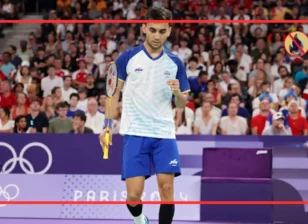French Social Unrest & Protests Explained
Since the inception of human civilization, social peace has always been an integral party of any society. From that time onwards, societies immensely struggled to attain a sustainable peaceful environment. In that context, France, a renowned nation for its history of political activism and protest, has contemporarily been facing a wave of protests and social unrest. Unquestionably, these protests have gained international attention because the frequency, intensity, and sensitivity of such issues cannot be ignored. On the other hand, the driving forces that have caused such unrest have also been noticed by the global community. This analysis tries to examine the key catalysts and the broader socio-political context to provide a comprehensive understanding of the recent protests in France.
Protests Following the Death of a Teenager
The tragic death of a 17-year-old youth of Algerian heritage named Nahel at the hands of French police is one of the most significant triggers for the recent protests in France. The teenager was shot by a traffic police officer during a traffic stop in the Paris suburb of Nanterre. Noticeably, the incident was captured on camera by a passerby, showing two officers standing by the car, and one of them discharged his weapon despite there being no immediate apparent threat. Afterward, the officer claimed he opened fire on the boy because he feared that the boy might run over someone with the car. This incident, however, sparked massive public outrage and raised suspicions of excessive use of force by the police.
The aftermath of the killing of Nahel witnessed an unprecedented surge in protests across France. These protests have been characterized by incidents of violence, events of clashes between demonstrators and police, and violent attacks on public goods and places like town halls, schools, vehicles, and even police stations. In response to these ongoing crises, French President Emmanuel Macron called on an emergency meeting with ministers to address the intensifying situation.
By continuing over several days, protests have resulted in injuring more than 500 police officers and gendarmes and detaining over 2,000 people. The government, in response, deployed over 40,000 police personnel granting them powers to quell riots and restore order across the country. These forces have been assigned duties to patrol cities around the country to keep checks and balances to restore peace.
Racial Discrimination and Police Brutality
Apparently, the immediate cause of the protests seems to be the tragic death of Nahel, but there are deep-rooted tensions, worth looking at, related to the discrimination by the police against marginalized communities in France. According to some reports, the accusations of racial profiling and police brutality have long plagued the track record of the French police force.
The secularism principle of France, also known as “laïcité,” in the pursuit of equality for all, aims to eradicate markers of difference including race. Contrary to that, many people of color in France profess that they have disproportionately been victims of police brutality. A recent research report published by the Right Defenders in 2017 claims that young men perceived to be Black or Arab like to be stopped by police 20 times more than their peers.
Pension Reform Protests
Another significant public outrage in France arose when President Macron proposed controversial pension reforms, which sought to raise the retirement age from 62 to 64. In the first quarter of 2023, over one million protestors demonstrated on the streets against the proposed reforms. As the demonstrations continued for several days, the government faced two votes of no confidence in the meantime.
Despite the widespread protests, the French President, who had promised to reform the pension system during his election campaign, declared that he was determined to implement the changes despite the widespread protests. This stance further created a sense of disillusionment with the leadership of Macron, and further fueled public discontent.
Macron’s Broken Promises and Public Discontent
To win the public trust, any government needs to fulfill its promises manifested during its election campaigns. If we look closely, the ongoing social unrest is not solely about the specific incident or policy changes. There is a wide variety of interrelated issues pertaining to governance and political dissatisfaction. Nevertheless, the presidency of Macron has fallen short for many citizens as it was marked by high expectations and promises of a new style of governance.
Notably, the government’s actions ranging from the violent repression of the “gilets jaunes” (yellow west) movement to the controversial pension reform have left segments of French society feeling ignored, excluded, and disrespected. Failure of Macron’s leadership to deliver on his pledges of changed governance system has exacerbated the protests and eroded public trust.
On the other hand, the perception related to increased police violence has developed a shared sense of humiliation and dispossession that results in socio-economic, and regional divides in France. A fragmented political landscape combined with the cycle of protests and acts of repression poses challenges for the future stability of the country.
All in all
To sum up, the recent social unrest and protests in France are formed by a complex interplay of various factors. While it is important to note that the tragic death of Nahel sparked the initial outrage, it was the broader context of racial discrimination, police brutality, discontent with pension reforms, and disillusionment with the leadership of the president that sustained and intensified this continuous public unrest.
Undoubtedly, these protests are the reflection of shared anger and frustration felt by a diverse cross-section of French society. Consequently, it will be a challenge worth winning to resolve the issues of racial discrimination, police reform, and political responsiveness that are essential to restoring trust and stability in the nation.





